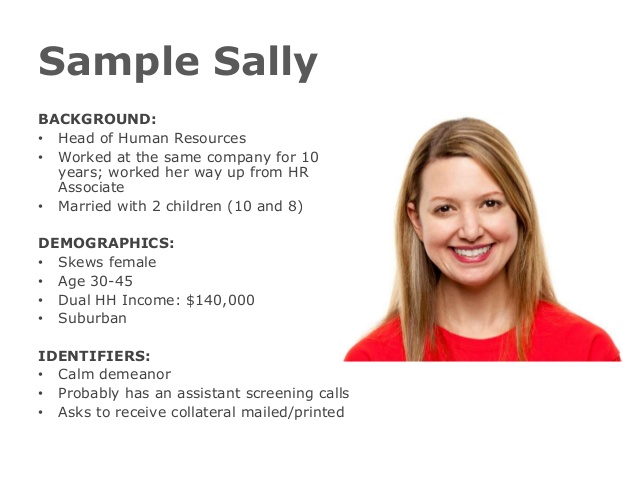What Is A Buyer Persona?
May 11, 2020

Author: Georgia Townshend
Reading Time: 3 minutes
Not everyone is going to buy your product or service. Nor should you want them to. Some people simply aren’t a good fit for you and your offering, and if you market and sell to them, they’ll likely find out first-hand that they don’t suit. Even worse, their negative reviews and social media posts may deter the customers who are a good fit.
So, how do you avoid selling and marketing to the wrong people?
Buyer Personas
If you want your company to grow better, you need to have a deep understanding of your ideal customer. To do this, we recommend creating a buyer persona.
A buyer persona is defined by Hubspot as: “A semi-fictional representation of your ideal buyer based on data, interviews, and some educated guesses.”
It’s essentially a definition of your ideal buyer laid out in a way that sounds like you’re talking about a specific person.
Here’s an example:

Connect Your Marketing Efforts
Personas are usually developed by marketing teams to guide marketing efforts. They are born from a collection of demographic information and personal preferences with the purpose of helping create content and campaigns that will resonate emotionally with that specific consumer.
Buyer personas help businesses understand and empathize with their customers so they can do a better job of acquiring and serving them. But personas extend beyond use for just your marketing! They have just as much value for your sales and services teams as they do for your marketers.
Think about it this way: If your marketing team has a persona they’re marketing to, while your sales team has a profile they use to qualify leads, and your services team has another set of criteria they use to measure customer satisfaction, your teams are going to be disjointed, and your customers will likely feel it.
With marketing talking to your customers in one way, sales rebooting the conversation when they take over, and then services having a completely different set of expectations about what your customers need and want, there’s going to be a lot of frustration internally and externally. The results? Inefficient teams and unhappy customers.
How many buyer personas do you need?
It will depend on your offering and how many types of consumers you service – appropriate buyer personas allow you to focus on the challenges and pain points of your prospects and customers, and provide you with a precise stream of marketing to hit the right people at the right time, with the right content!
But more so than anything else, buyer personas inform you of what your business should be doing to help potential customers.
Without buyer personas, we wouldn’t know what content to create, which material to share, where to share it, or how we should direct our marketing efforts!
Key Takeaways
The purpose of constructing buyer personas is so that you know exactly who to attract, who you want to delight with your astoundingly good content and eventually, get on board with your business and make a repeat customer.
Having concise buyer personas helps you to segment your audience and contacts – allowing you to deliver granular accuracy, and targeted messaging.
In a time of information overload, you want to be specific and detail orientated. The more personalised and accurate you can be with your marketing and content, the easier it is to break through the clutter of information online and engage with your ideal target audience.




